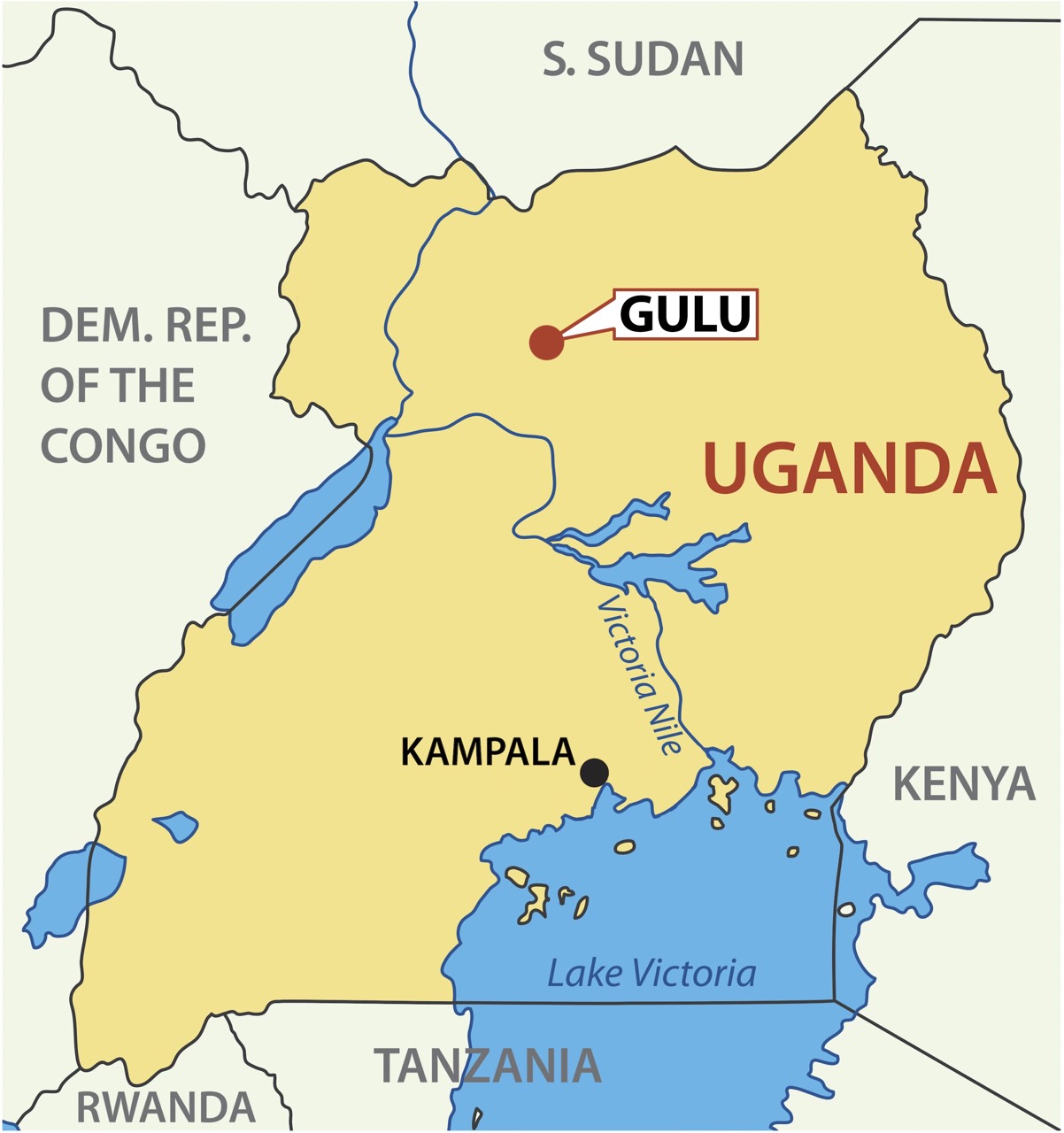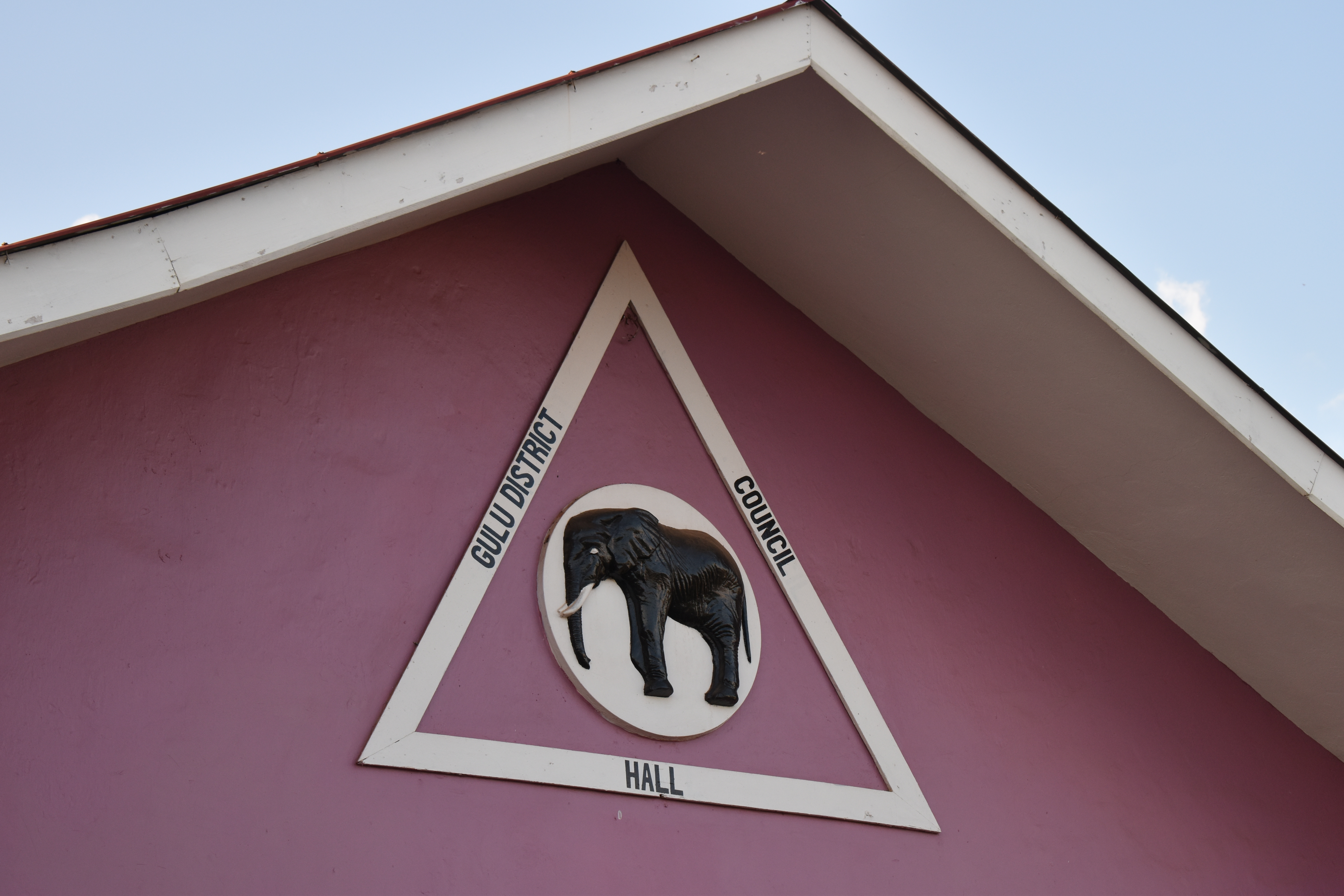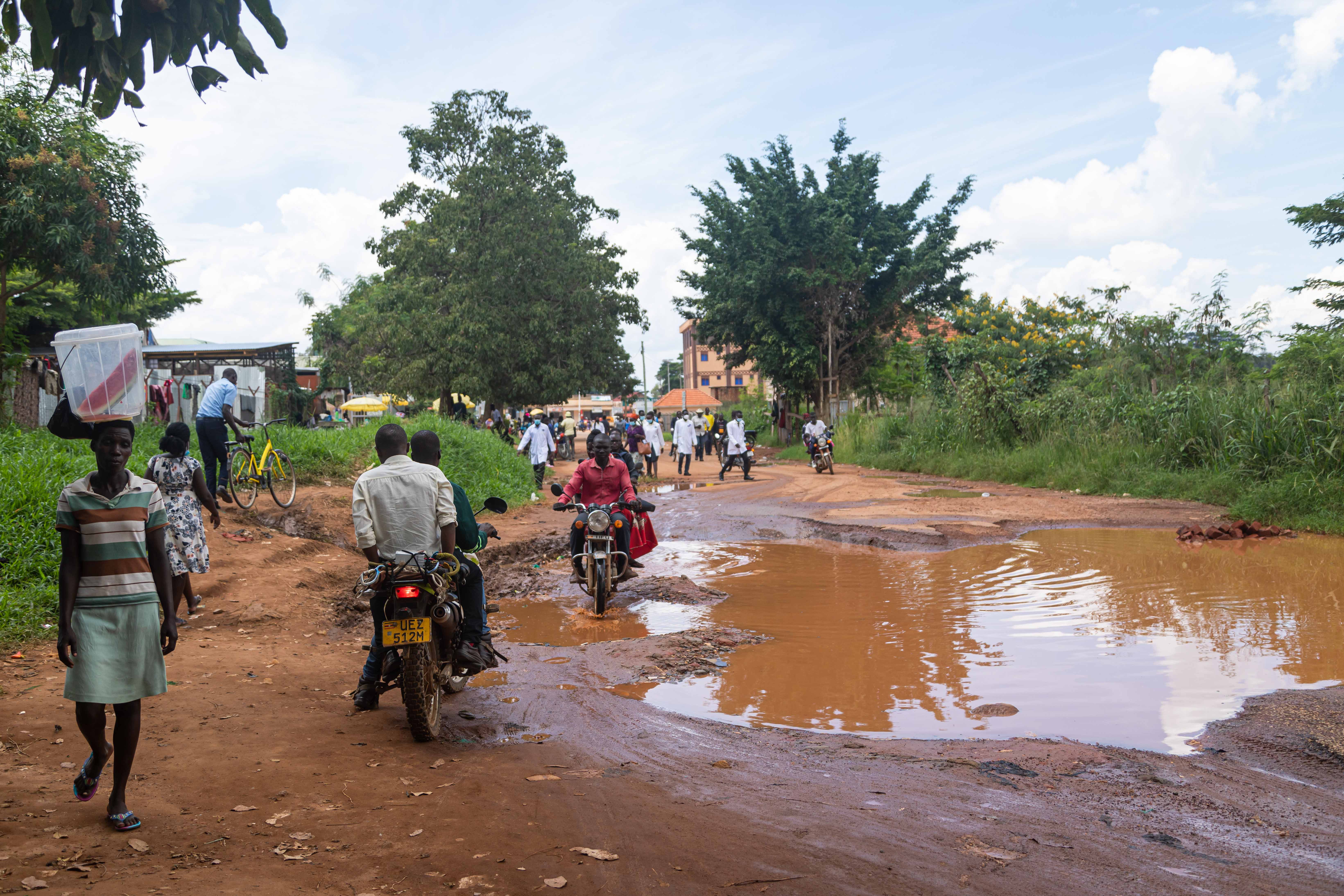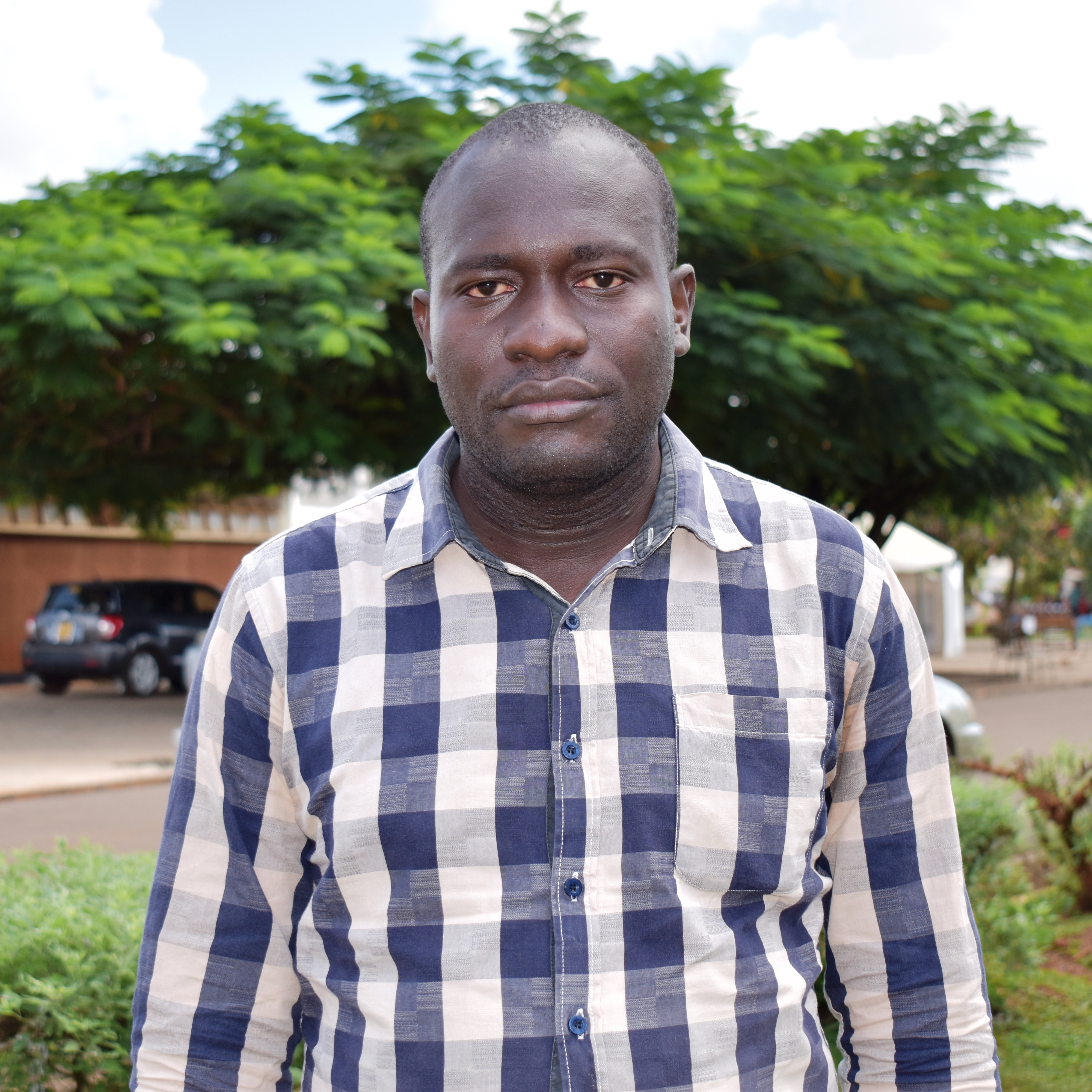Gulu, the de-facto capital of Northern Uganda, looks a lot better than it did twenty years ago when Joseph Kony’s Lord’s Resistance Army was ravaging the region. A World Bank-aided roadbuilding programme and sudden booms in investment bring new possibilities for development, revenue collection and funding sources. If managed well, Gulu City will continue to become a metropolis. But the city’s administration continues to frustrate progress, threatening future development and sometimes even claiming the lives of citizens.

‘Ms Christine’
Christine Aromo Apire, a primary two class teacher who used to work at Pece primary school in Gulu, was last seen by her employer on the 12th February 2018. Her disappearance, after eleven years in the role, came just as investigators were about to discover that Christine’s real name was Happy Carol Anena and that she had not qualified or registered as a teacher. It appears that Anena owed her teaching appointment to her husband, Geoffrey Lokwiya, who had recommended her for the job while serving as secretary of the District Service Commission, the body that appoints all civil servants in the district. She had been collecting a monthly salary of slightly over US$100, a good income for the area.
The performance of this school and the whole district suggests that Happy Anena may not have been alone in lacking the proper qualifications. According to the 2020 primary school leavers examination results Gulu district ranked 102nd, far below Kampala’s 17th place. Local parent Adoch Paska, 27, said she had to enrol her daughter in a private school because ‘the teachers here are not serious.’ The private school charges fees, though, which is something most parents here can’t afford.
A great deterrent to service delivery
Ms Anena’s story illustrates a risk inherent in the system. Each of Uganda’s administrative districts has its civil servants vetted and approved by a District Service Commission (DSC), which is composed of ‘senior members of the community.’ These individuals in turn owe their appointments to local district governments in consultation with the national Public Service Commission.
However, the absence of checks and balances in this system that rarely monitors the performance of those it appoints means that nepotism is rife. This is especially true in areas far from urban structures and robust civil society. In its annual progress report for 2017, the Inspectorate of Government of Uganda wrote about local governments that ‘a chain of errant officials in same or different institutions connive and embezzle or misuse public resources, usually without detection due to concealment. This is indeed a great deterrent to effective service delivery.’
And sometimes the ‘errant officials’ start fighting.
All the candidates appeared ‘briefed and knowledgeable'
In 2015 Gulu DSC’s then-chairperson Mackmot Kitara went on record to say that the district’s appointments of one head teacher, the deputy town clerk, a population officer and the district planner had all been ‘irregular’. In a panel interview he had chaired, he said, all the candidates appeared ‘briefed and knowledgeable,’ which had led him to conclude that the interview questions had been leaked. ‘I am an old man and I have served the district diligently’, he stated in a public briefing. ‘I will not allow this petty thing to soil my reputation. We shall take a decision on the implicated staff.’
In the subsequent official government investigation, Geoffrey Lokwiya was found guilty of leaking examination questions to candidates for the 2015 civil servant interviews, and also of altering minutes of meetings where applicants were discussed. He was transferred to a less influential position and, after a lengthy process, also interdicted from the Gulu DSC office, which meant suspension on half pay.

The exercise in transparency backfired for Mackmot Kitara, however, when the Public Service Commission’s report on the scandal, released in February 2016, found that Kitara was similarly implicated. While serving as chair of the DSC he had participated in interviewing his nephew, John Oola Omona, in the latter’s successful application for the post of deputy town clerk. The Commission ordered the appointment cancelled.
Iron-bar hitmen
Fighting what he saw as an unfair decision, John Oola Omona stayed in office and petitioned the High Court on the matter. The process was still pending when, on 23 April 2017, he was murdered by so-called ‘iron bar hitmen’ in a city suburb shortly after he had dropped off a friend at her home.
'Iron bar hitmen’ are not a new phenomenon in Gulu, or indeed Uganda. Such criminals use crude weapons, often pangas, or pieces of scrap steel from construction sites, to threaten and attack their victims. Before Omona’s murder, similar attacks had already targeted Gulu’s resident state attorney, a magistrate and a number of other public officials. But all of these victims had survived except Omona, who was murdered but whose possessions appeared to have been left untouched. Had this killing been motivated by rivalry over his job?
One likely suspect in the case was Filbert Otim Baijuka, a candidate for the same position of deputy town clerk, who was described by police as having an ‘unresolved grudge with the deceased’. But there was no evidence connecting Baijuka to the killing. However, soon thereafter another suspicion emerged: that this had been a fight over bribes, offered in return for contracts that certain local government officials, including the deputy town clerk, were responsible for allocating.
The World Bank project was spending millions of dollars
According to local reports, Uganda’s Internal Security Organisation (ISO) then landed in Gulu to investigate a possible connection to a local World Bank project. The project, called USMID, or ‘Uganda Support for Municipal Infrastructure Development’, was spending millions of dollars in towns all over the country, including Gulu, to build roads. In Gulu, deputy town clerk John Oola Omona had been the point man.

Masterminds
Still DSC chairman at the time, Oola’s uncle Mackmot Kitara had heard whispers about the project. 'We were told there was corruption in the construction of the World Bank-funded roads, especially on the Gulu-Nimule Road’, he says. ‘A Chinese company offered to give him and others money. To talk about those others, or indeed about what happened at all, is still risky, but Kitara says he does not care. ‘I am old and sick anyway’, he says, before adding that the ‘others’ were a group of Gulu’s municipal officers led by a top official our lawyers have asked us to refer to as X.
‘The money was supposed to come in two phases’, explains Kitara. ‘Oola received the first batch. When he got the money he took it to the others. But X did not give him anything. So when the second round came, of about seventy million Shillings (then around US$19,000), my nephew didn’t hand it over. That is why he was killed.’ Kitara also claims that the murderers were caught and taken to the police but that their case file disappeared. ‘We hear they were helped to go abroad’, he says.
‘We hear that the killers were helped to go abroad’
A second source close to Kitara echoes his claims. ‘The masterminds came from Gulu Municipal Council. On the night he was killed, (Oola Omona) had a phone conversation with X, who told him that he “would do something that his family wouldn’t forget.” There are people who were with Oola during that call and even talked to him about the threat.’
The same source further claims that X ‘has killed a number of people before, but no one wants to say it openly. They tampered with the investigations. We made efforts so that the people who were with Oola could testify. They recorded their statements but these never made it to the police file. There was connivance with police officers and the court. Officials at the local government and even the World Bank were involved.’
Comments on a murder
The Gulu Police spokesperson who was in office at the time of the murder in 2017 responded on Whatsapp to questions about the murder of John Oola Omona saying that they had since been transferred and that we would have to speak to those that occupy the position now. Current spokesman David Ongom Mudong however, did not reply to questions sent to him. The Gulu municipality also did not respond to questions.
When we asked World Bank spokesperson Keziah Mutembwawhether the World Bank had been aware of the murder of Oola Omona and of allegations linking his killing to the World Bank project, including allegations of local World Bank staff involvement, she responded: “We are aware of the unfortunate incident that involved a Deputy Town Clerk of Gulu Municipal Council where the World Bank funded USMID Program is being implemented. This incident was handled by the police who launched a criminal investigation and made arrests. We encourage you to reach out to the relevant government authorities who handled this investigation.” She added a World Bank website link where anyone ‘with concerns about corruption’ can post a complaint.
Twenty-four idle fishponds
Today, service delivery in Gulu and the surrounding region still leaves much to be desired. A US$400,000 fish hatchery in the Bardege-Laroo area, built in 2008 with funding from the African Development Bank and equipped with twenty-four fish ponds and a water heating facility, regulatory tank and hatchery, breeding tanks and a fish processing machine, has been laying idle, lacking fish feed and a supply of hatchlings, amongst other necessities. According to a report from 2021, some of the equipment and buildings are ‘dilapidated and (have been) vandalised by members of the community’.
Just outside Gulu fourteen other fish ponds, started by the Amuru district local government in 2008, are also suffering from a lack of supplies and ageing equipment. ‘The hatchery is rusted and worn out,' manager Omony Denish Charles says, adding that they had ‘high hopes' at the start of the project, but that the fishery department no longer pays attention to it. Meanwhile, Amuru fisheries officer Rogers Baguma has been ordered before a disciplinary hearing, having served in the role for six years. He is accused of forging his education certificates.
The fisheries officer will attend a disciplinary hearing soon
In neighbouring Lamwo, a water project supported by the World Bank and meant to produce water filtration, agriculture and fishery spin-offs has been forced to return the equivalent of close to US$50,000 to the government after funds were found to have been diverted to buy a cheaper tractor from a sub-standard supplier at inflated prices. The project, which was meant to increase livelihood opportunities for residents, many of whom are only recently returned since being displaced by the war, now also languishes.
What all these projects all seem to have in common, is that they are not sustained after initial implementation because of weak structures of management, maintenance and monitoring. This may be in part because the central government’s scrutiny is focused on large block grants such as the USMID, which involve external stakeholders and large sums of money, at the expense of keeping a watchful eye on day-to-day administration.
And even if the new roads in Gulu are shining examples of infrastructural progress - Mackmot Kitara, for one, maintains that his murdered nephew deserves credit for Gulu performing ‘very well’ here - these roads may go the same way as the fishponds if they’re not properly cared for. Gilbert Oulanya, MP for Kilak County in Amuru district, recently appealed to the central government to ensure proper maintenance of the new roads in the area, noting that some sections had already developed potholes.

Amuru District is very close to getting a reprimand
At the sub-region’s Inspectorate offices, regional IG head Geoffrey Matovu admits to getting fed up with some of the DSCs. While ten officers have been removed from office in the past few years for either forged or absent qualifications, complaints about local public officials’ appointments continue to pour in, he says, explaining that ‘there is a lack of capacity at lower levels’ to verify qualifications, since ‘they don’t have a budget to check these papers with the respective academic institutions. Then the complaints come when the (appointees) are in service.’ Then the DSC’s are also very slow to handle these, he adds. ‘After finishing the investigation and making a recommendation, you find them taking over a year in implementing it.’ A note of frustration creeps into his voice.
Districts which do not clamp down on problems may get reprimands from the central government, a formal precursor to more substantial legal consequences. ‘Delay of service delivery is an offence’, Matovu emphasises. ‘Right now Amuru District is very close to getting a reprimand.’ In case such reprimands are not heeded, the Inspectorate of Government has powers to arrest and prosecute individuals and teams who impede service delivery.
Systemic faults
Nevertheless, any action taken by the IG still depends on the government receiving complaints identifying individual civil servants. This means that non-performance continues as long as no one formally complains. The focus on individual appointees also means that it is difficult to address systemic faults.
Asked if there are any structural ways to deal with the problem, like regularly checking individuals’ work performance or more thorough supervision and management, the Ministry of Public Service’s Permanent Secretary, Catherine Bitarakwate Musingwiire, brushes the question aside. After first saying that she was aware of the challenges in the District Service Commissions, she then adds that public service matters are ‘constitutionally the mandate of the (national) Public Service Commission.’
But the PSC doesn’t seem able to address the problem either. Dr John Mbabazi, the secretary of the PSC in Kampala, tells us that the PSC’s only role is to ‘engage the DSCs on a complaint based on unfair treatment’ and that it, like the regional offices, exclusively acts on a case-by-case basis. According to Mbabazi, the PSC doesn’t even occupy itself with criminal issues, like forgery, falsification, or corruption, saying that ‘these fall under the Inspectorate of Government’.
Walter Komakech, who lectures on Decentralisation and Governance at Gulu University, feels that the failure to attract qualified professionals to local government, and the resulting ‘shoddy work and gross abuse of our communities’, is in part due to the state’s decentralised structure. ‘If you keep appointments within the districts, there will always be fights in the context of nepotism and corruption.’ Rather, he says, such powers of appointment should be given to a regional Public Service Commission.
Walter Akena, of the independent public policy research and advocacy think-tank Advocates Coalition for Development and Environment (ACODE), says that the Local Government ministry should create a policy to address these gaps. ‘This needs a ministerial review that should be taken to parliament (for ratification) too’, he says. In the interim, the Inspectorate of Government should interact with the districts ‘since certain matters require direct termination because of their criminal nature.’
All the tricks
Philip Oket-Keny, the new chairman of the Gulu DSC and a former teacher, insists that the commission is now working to root out corruption in appointments. ‘We have become wise to all the tricks’, he says. When pressed, however, Oket-Keny admits that there still is systemic ‘pressure’ to appoint incompetent people in exchange for bribes. ‘We are only paid allowances and transport totalling to UGX 250,000 (around US$65), per sitting, while the commission might only sit four times a year. When applicants then offer up to UGX 5 million (over US$ 1300) to DSC members for a job, this makes it tempting.’ He later adds that ‘this makes by default all the district service commissions in the country corrupt.’
Oket-Keny nevertheless hopes for improvement from some changes he has proposed, among which is a new in-house policy that proposes to share applicants’ appointment letters with the entire commission. He faces a long climb though. Geoffrey Lokwiya, the husband of ‘Ms Christine’, has been reinstated, albeit to a slightly lower position, ‘since it was his first offence’.
Parents of school children in Gulu are unconvinced that change is coming. Mark Opiyo, a resident of Kabedopong in Layibi, Bardege division in Gulu, has given up on the city’s schools and sent his children to study in Kampala, over 300 kilometres away. ‘My children are better off in Kampala. In Gulu the performance of most schools keeps going down.’
UPDATE: Fearing IG reprimand, Amuru sacks official at heart of document forgery row
23.09.2022
In 2020 the Inspectorate of Government discovered that Amuru district fisheries officer Rogers Baguma, who was appointed to his post in May 2016 on the recommendation of the Amuru District service Commission, had forged his Uganda Certificate of Education (UCE). On discovering this, the then-Deputy Inspector of Government George Bamugemereire recommended that Baguma be immediately removed from his post. However, despite the recommendation by the Inspectorate of Government being made in 2020, when ZAM started its investigation on systematic challenges threatening sustainable development in northern Uganda in June 2022 we found Baguma still in office.
However since our article was published Mr. Obong Thomas, the district’s Chief administrative officer (CAO), wrote to Baguma Rogers to notify him of his dismissal on the grounds of forgery. The letter also states, ‘You will not be entitled to any terminal benefit attached to your appointment such as retirement and other terminal benefits in accordance with section(F-1) of Uganda Public service standing orders. The chairperson of the Amuru District Service Commission, Mary Ayenyo Okello confirmed the decision. In the same interview, she reiterated that the commission faces a shortage of resources in verifying academic documents, a process which she describes as a big challenge in the recruitment process.

James Onono Ojok is a freelance investigative journalist based in Gulu. He produces programmes for Mega FM and also works as a communication officer at Gulu University. He has published a number of poetry works, including about the civil war in northern Uganda.
Investigative and narrative editing Stephen Kafeero and Evelyn Groenink.


